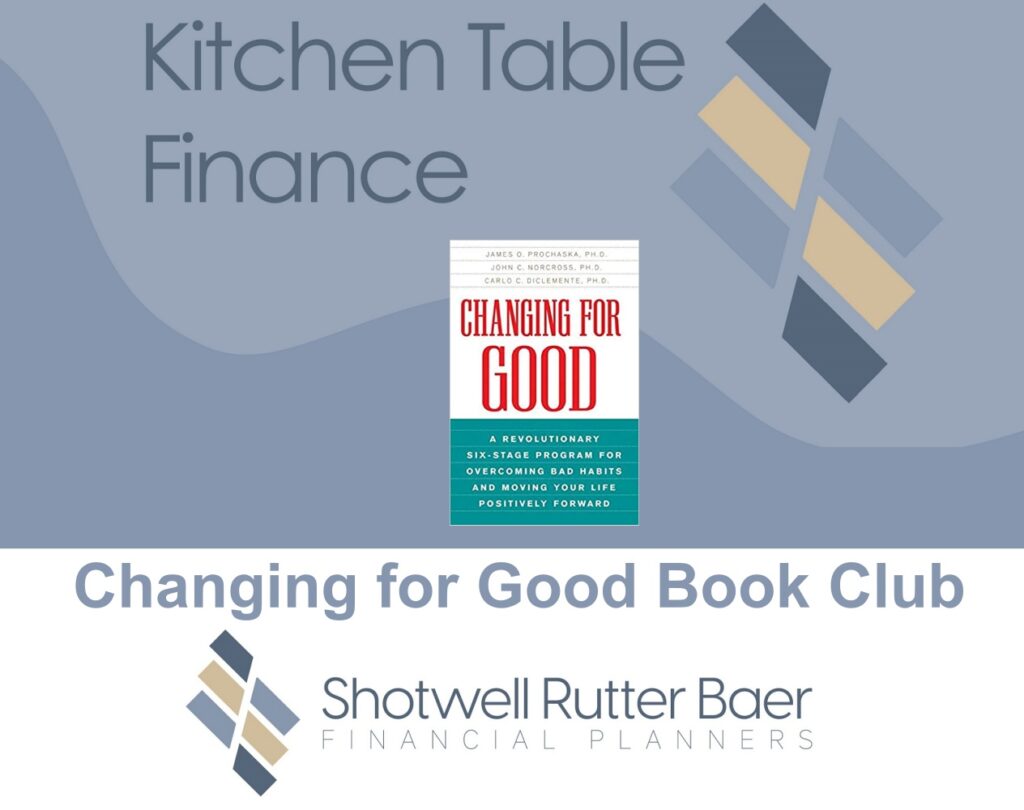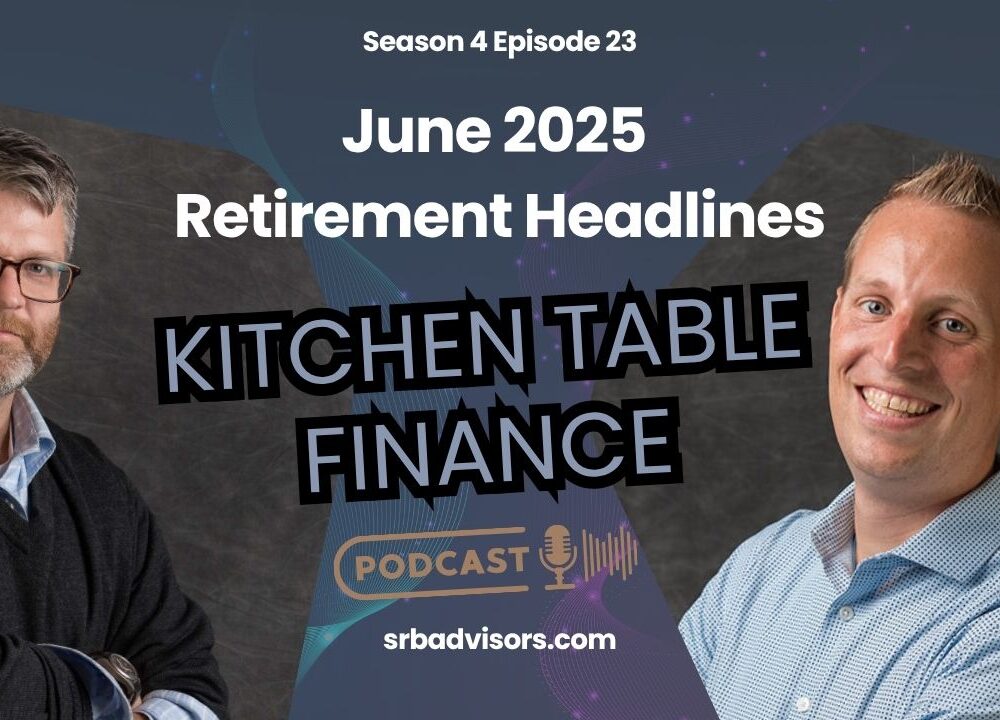Changing for Good Book Club

Podcast: Play in new window | Download
For our book club, Amy, Jeff, Nick, and I have been reading Changing for Good by James Proshaska, John Norcross, and Carlo DiClemente. This book was first brought to my attention by one of my instructors at Kansas State, Dr. Megan Lurtz, who wrote an article about how to apply the book’s teachings to the financial planning process.
Our team found the book extremely useful. Not just for financial planning but because it provides a great framework for how to change habits and make progress in life.
Whether you are trying to change financial habits or health habits, the authors break the steps of changing for good into six parts:
- Precontemplation: In this first stage, you aren’t ready to change. Precontemplation is akin to denial, not accepting that a particular behavior is detrimental and needs to change.
- Contemplation: in this stage, we are considering making a change, weighing the pros and cons. Change has a cost: it often involves letting go of things we find comforting and part of our lifestyle. In the contemplation stage, we are evaluating the tradeoffs and moving our mindset toward acting.
- Preparation: At this point, our mind is made up that we need to act, and we lay the groundwork. Preparation may involve choosing a budget plan, joining a gym, or getting the junk food out of the house.
- Action: As the name implies, this is where we begin to work to change our behavior. Hitting the gym, tracking our spending, or forgoing cigarettes. The book offers many support mechanisms and tools to help institute and enforce the appropriate actions.
- Maintenance: Once we have achieved a change, we must maintain it to prevent backsliding. This is often the most difficult stage. Most of us have experienced losing weight or starting an exercise program. We reach some goals only to find a year later we’re back where we started. As with the action step, the authors provide many strategies to help support behavioral change long–term.
- Termination: At the termination stage, behavior change has become so permanent that we no longer must worry about backsliding. This state may never be achieved, depending on the nature of the change we are trying to achieve.
The key to understanding this framework is knowing that you can’t expect to move from one stage to the next until you are ready to make that move. Many of us try to go from contemplation to action, skipping preparation. First, we have to completely convince ourselves that we’re ready to make a change. Most New Year’s Resolutions fall into this category: we simply decide that we should behave differently and arbitrarily try to stop on the first day of the year. Usually, we make this decision without truly committing to the depth of change it requires. By mid-January, we’re back where we started.
We highly recommend this book for anyone looking to make behavioral changes, whether those changes are health-related or financial.
About Shotwell Rutter Baer
Shotwell Rutter Baer is proud to be an independent, fee-only registered investment advisory firm. This means that we are only compensated by our clients for our knowledge and guidance — not from commissions by selling financial products. Our only motivation is to help you achieve financial freedom and peace of mind. By structuring our business this way we believe that many of the conflicts of interest that plague the financial services industry are eliminated. We work for our clients, period.
Click here to learn about the Strategic Reliable Blueprint, our financial plan process for your future.
Call us at 517-321-4832 for financial and retirement investing advice.
Share post:
